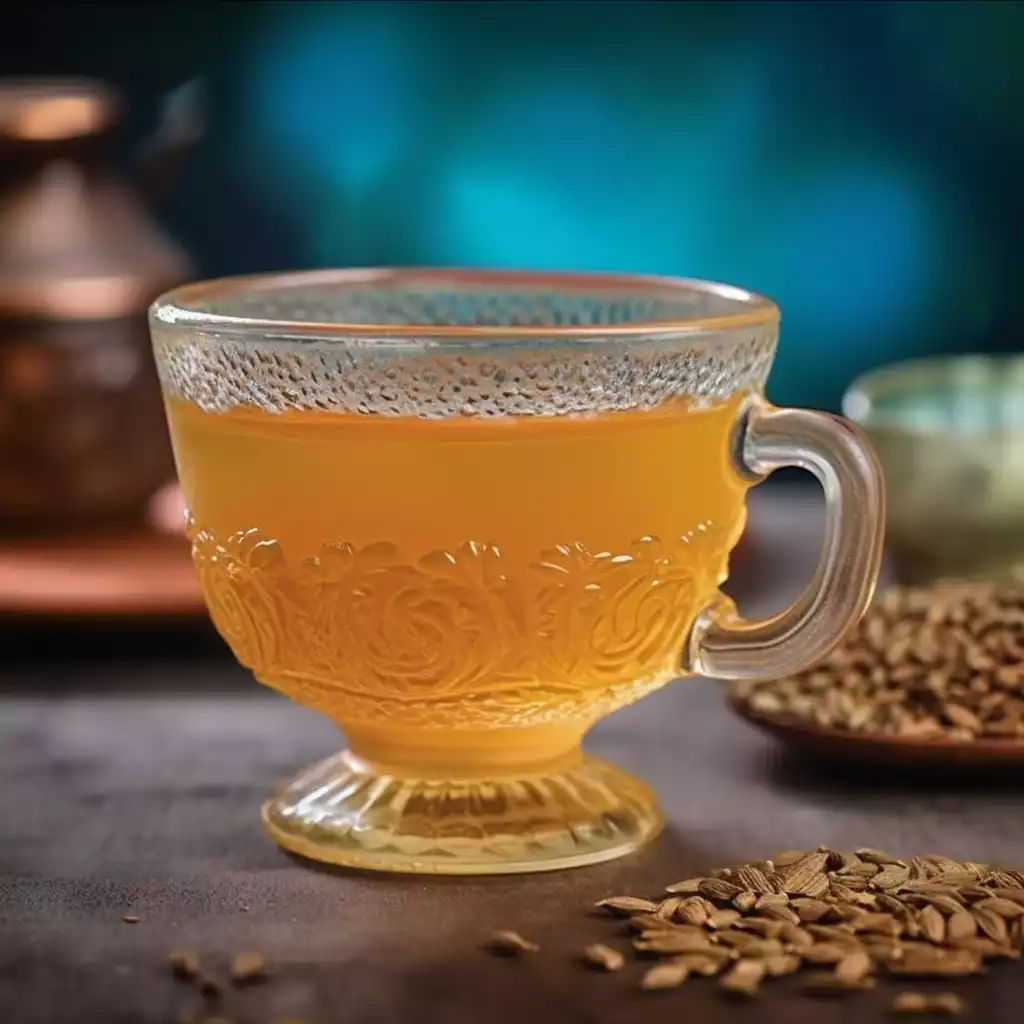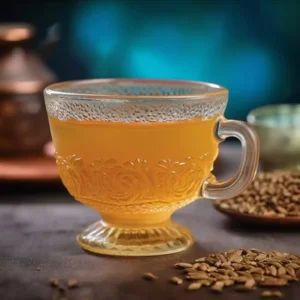
Savor the comforting warmth and aromatic essence of a beloved Indian beverage with my recipe for Ajwain Tea. Originating from the rich tapestry of Indian culinary traditions, Ajwain Tea offers a delightful fusion of flavors and wellness benefits.
This tea, infused with the distinctive taste of ajwain seeds, blends seamlessly with the earthy notes of tea leaves, enhanced by a hint of ginger, turmeric, honey, and lemon juice.
Despite its exotic origins, crafting Ajwain Tea is surprisingly simple, making it an accessible treat for both novice and seasoned tea enthusiasts alike.
Expert Tip: Feel free to garnish your Ajwain Tea with fresh mint leaves or a sprinkle of ground cinnamon for an added visual and aromatic appeal.
Ajwain Seeds (Carom Seeds): Infuse the tea with their distinctively aromatic and slightly bitter flavor, known for their digestive properties and subtle peppery undertones.
Tea Leaves or Tea Bag: Offers the classic essence of tea, enriching the brew with its robust flavor profile and comforting warmth.
Honey: Adds natural sweetness to the tea, balancing out the spices and creating a harmonious flavor profile. Additionally, honey lends its soothing properties to the beverage.
Ground Ginger: Enhances the aroma and flavor of the tea with its warm and spicy notes, while also providing digestive benefits and a comforting warmth.
Ground Turmeric: Imparts a golden hue and earthy flavor to the tea, along with its renowned anti-inflammatory properties and subtle bitterness.
Lemon Juice: Brightens up the flavors of the tea with its tangy zest, adding a refreshing citrusy note that complements the other ingredients.
Expert Tip: For an extra boost of flavor, add a cinnamon stick or cardamom pods to the tea while brewing.
Expert Tip: Experiment with different ratios of spices to customize the flavor profile of your Ajwain Tea.
Adjust the strength of the tea according to your preference by varying the steeping time. For a stronger brew, steep the tea for a longer duration.
Yes, you can use fresh ginger slices instead of ground ginger. Simply add them to the water while boiling for a fragrant infusion.
Straining the tea helps remove the ajwain seeds and tea leaves, ensuring a smoother texture. However, if you prefer a rustic touch, you can skip this step.
Absolutely! Adjust the amount of honey to suit your taste preferences. You can also substitute honey with other sweeteners like sugar or maple syrup.
Ajwain Tea is best enjoyed fresh. However, you can store leftovers in an airtight container in the refrigerator for up to 24 hours. Reheat gently before serving.
Here are some more recipes for you to enjoy! If you my recipes don’t forget to rate and leave a comment.
If you have any recipe suggestions, please do not hesitate to ask me. A great way to stay in contact with me is through Instagram, Facebook, Twitter and YouTube. Don’t forget to tag me @CookwithNabeela in your recipe photos!

Subscribe now to receive my latest recipes directly in your inbox. Stay up-to-date and never miss out!

I love to cook! I want to share with you my favourite, delicious family-friendly recipes. I want to inspire you to create fantastic food for your family every day.
Add your first comment to this post